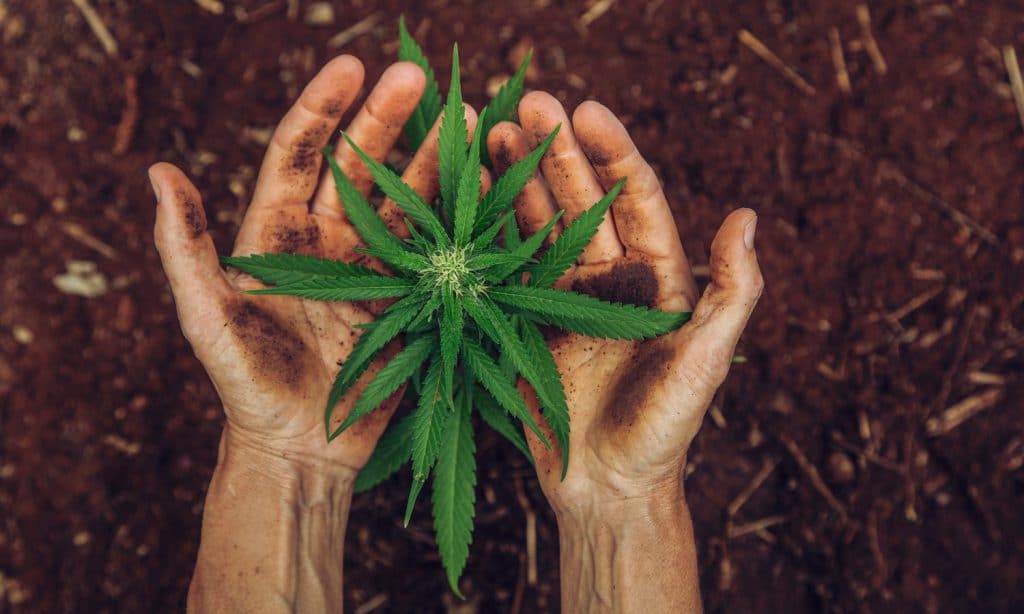Many hemp farmers have not yet been able to access economic relief because funds made available by the CARES Act were not earmarked for agriculture-related businesses. That appears to be changing.
Recently Congress passed a series of bills aimed at offsetting the economic impact of the coronavirus including the Families First Coronavirus Response Act (Families First Act), the Coronavirus Aid, Relief, and Economic Security Act (CARES Act) and the Coronavirus Preparedness and Response Supplemental Appropriations Act (CPRSA).
We recently wrote about how these economic benefits would not be available for marijuana businesses due to the continued prohibition of marijuana activities under federal law. This was recently confirmed in a tweet from a representative from the Small Business Administration (SBA) responding to a question about whether cannabis businesses would be eligible for federal Coronavirus relief:
With the exception of businesses that produce or sell hemp and hemp-derived products (Agriculture Improvement Act of 2018, Public Law 115-334), marijuana-related businesses are not eligible for SBA-funded services (OMB, 2 C.F.R. § 200.300).
— SBA Pacific NW (@SBAPacificNW) March 23, 2020
This is a significant burden on the marijuana industry but as you can see from the response above, hemp producers are not disqualified from federal relief thanks to the Agriculture Improvement Act of 2018 aka the 2018 Farm Bill.
However, many hemp farmers have not yet been able to access economic relief because funds made available by the CARES Act were not earmarked for agriculture-related businesses. That appears to be changing.
RELATED: Hemp Farmers Really Need A Break In 2020
On Thursday, April 23rd, the US House of Representatives voted to pass a $484 billion economic stimulus package that had previously passed the Senate and now awaits signature from Donald Trump. According to Hemp Industry Daily $321 billion is going to fund the SBA’s Paycheck Protection Program (PPP) including $60 billion for small lenders and community banks. In addition, Economic Injury Disaster Loans (EIDL) will be available for farms with fewer than 500 employees. These EIDLs provide up to $10,000 in advance for small businesses. To be eligible, agricultural businesses will need to show they have been hurt economically by COVID-19.

This is welcome news for farmers generally as agricultural-related businesses have not yet been able to apply for EIDL offered under the CARES Act. The Amendment that passed the House included a provision that allowed agricultural businesses to participate in the EIDL. This could be especially good news for hemp businesses who already face stigma due to the crops close relationship to marijuana. After all, the difference is just the amount of THC in the plant, a compound that cannot be detected without sophisticated testing. In my experience, many hemp businesses have been denied access to basic financial services despite the 2018 Farm Bill’s passage in December 2018.
Hemp producers who want relief should plan to act fast as funds are going to run out quickly after Trump signs the amendment. There really will be no time to waste in applying for EIDLs or the PPP.
RELATED: Will Cannabusiness Get Bailed Out From Losses During And After Pandemic?
When it comes to hemp-derived CBD (Hemp CBD) focused businesses, things aren’t quite as simple because depending on the product, Hemp CBD may not be fully compliant with the Food, Drug, and Cosmetic Act (FDCA) and Food and Drug Administration (FDA) regulations and policy. The FDA’s view is that most Hemp CBD products violate the FDCA, specifically Hemp CBD foods and dietary supplements, and any Hemp CBD products (besides Epidiolex) marketed as drugs.
We’ll keep tracking relief for the economic downturn caused by the coronavirus. In the meantime, if you have any questions feel free to contact our hemp team.
Daniel Shortt is an attorney at Harris Bricken and this article was originally published on the Canna Law Blog.


